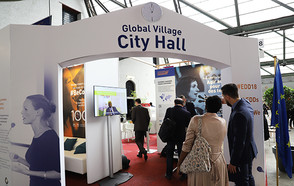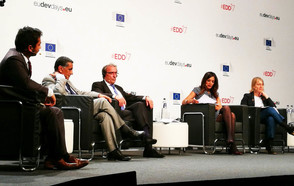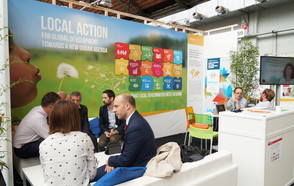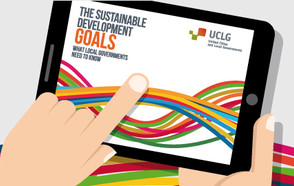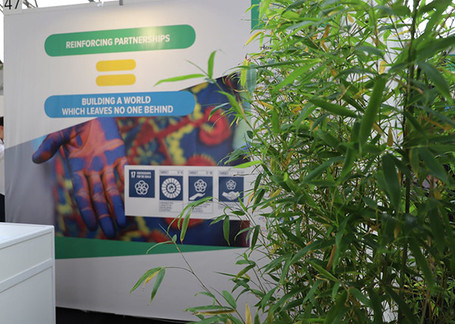
Under the theme ‘Addressing inequalities: building a world which leaves no one behind', the 13th edition of the European Development Days (EDD), Europe’s leading forum on international development cooperation, was held in Brussels on 18-19 June 2019.
This edition of the forum addressed current successes and failures in addressing inequalities in the implementation of the Sustainable Development Goals (SDGs) and the Global Development Agendas.
UCLG, together with other 5 major local and regional government organizations from the Global Taskforce – its regional sections UCLG Africa and CEMR, as well as PLATFORMA, AIMF, CLGF - were present at the Global Village City Hall stand. In the various sessions representatives from local and regional governments showcased how local and regional governments were already working to reduce inequalities through decentralised cooperation, through climate action, and through improving access to basic services and goods. The achievement of SDG 10 can only be done from the bottom-up, by tackling inequalities in urban planning.
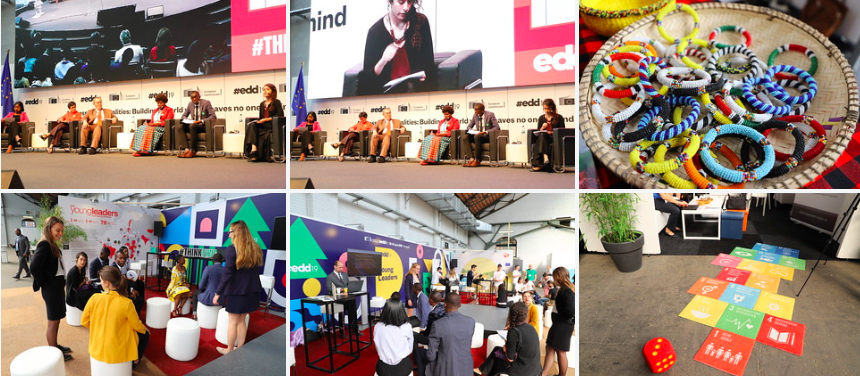
The local and regional dimension of the SDGs, essential to leave no-one behind
The 2030 Agenda for Sustainable Development promotes decentralised cooperation to harmonise and strengthen progress towards more equitable territorial development. In a dialogue with representatives of national governments, cooperation agencies, and leaders of local government networks, Marlène Siméon, director of Platforma, addressed how decentralised cooperation should be addressed through the local sphere, and involve citizens in order to co-create the societies of the future. Participants from the Spanish Government and the Andalusian Agency for Development Cooperation reinstated the messages of the #SevilleCommitment, and the importance of an integrated territorial approach to achieve the SDGs.
Marta Marin Sanchez, representative from the Basque Regional Government, Christopher Chishimba Kang'ombe, Mayor of Kitwe, and Béchir Odeimi, President of Cités Unies Liban, also presented their innovative strategies to tackle territorial challenges, assessing the state of decentralization in their countries and the challenges and opportunities that local and regional governments are facing to achieve the SDGs. For his part Frédéric Vállier, Secretary General of CEMR-CCER highlighted the essential need of multi-level territorial collaboration to truly ensure sustainable development.
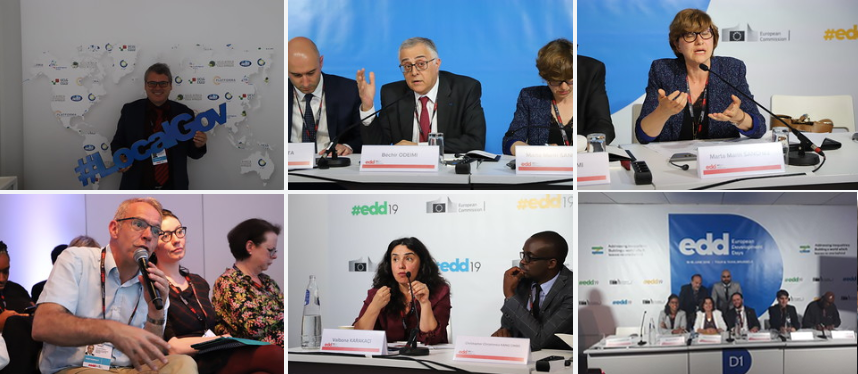
The Global Agendas cannot be achieved in isolation. This statement was echoed by participants of the event during the two days. Local and regional leaders from the Covenant of Mayors in Sub-Saharan Africa showcased how local actions were indispensable to achieve global climate targets, and brought forward the ambitious commitments of African cities in climate and the ground-up movement that has followed.
Addressing the inequalities that come with rapidly urbanising environments was also on the agenda at the EDDs. Participants addressed the challenge of decoupling economic growth and inequalities in cities, working to ensure fairer and more vibrant economies in rapidly urbanising cities which do not always have the resources to adapt to such a sudden growth. The role of the informal sector and, in particular, of the women that work in the informal sector was also a central issue of the debate, since often the inequalities that arise from rapid growth already affect the populations that are most vulnerable.
Working to reduce inequalities from the bottom-up from our Global Village City Hall
The Global City Hall has been displayed for the third year in a row for the purpose of the EDDs. The stand, developed by the local and regional government associations that hold a Strategic Partnership with the European Commission: UCLG, CEMR, UCLG, UCLG Africa. AIMF and CEMR, to promote the work of local and regional governments in reducing inequality on the ground and achieving SDG 10.
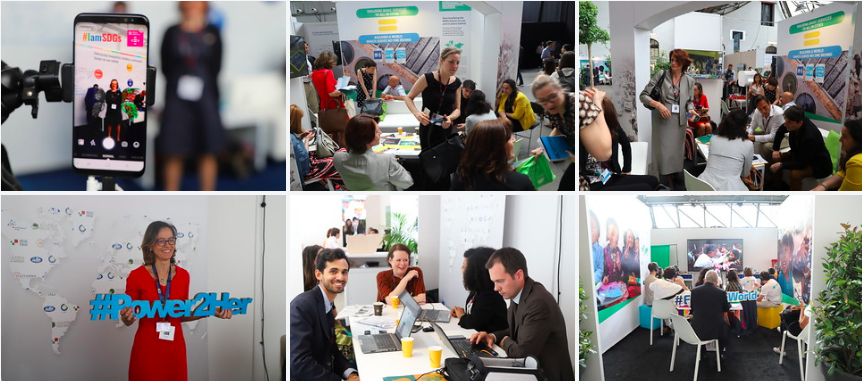
The Global City Town Hall has proven to be once again a vibrant space to develop joint work among partner organizations. Work meetings and exchanges between members of the partner organizations and the visitors of the stand have allowed the co-creation of ideas and provided opportunities to further the notion of the localization of the SDGs and the role that local and regional governments can play in achieving the global development agendas.
- Check our Flickr album
- Visit eudevdays.eu
- See How UCLG contributes to the SDGs











